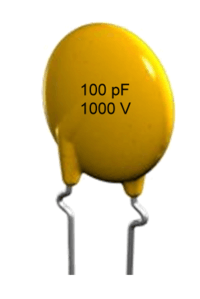Capacitors/Quiz
< Capacitors
Capacitors is a lecture and an article describing the electronics and electricity of capacitors.
You are free to take this quiz based on the lecture/article capacitors at any time.
To improve your score, read and study the lecture, the links contained within, listed under See also, and in the technology resources template. This should give you adequate background to get 100 %.
As a "learning by doing" resource, this quiz helps you to assess your knowledge and understanding of the information, and it is a quiz you may take over and over as a learning resource to improve your knowledge, understanding, test-taking skills, and your score.
A suggestion is to have the lecture available in a separate window.
To master the information and use only your memory while taking the quiz, try rewriting the information from more familiar points of view, or be creative with association.
Enjoy learning by doing!
Quiz
Original research
- See also: Original research inquiry and Research
Hypothesis:
- Questions appropriately asked in a quiz help to narrow down the capacitors limitations.
- See also: Control groups, Proof of concept, and Proof of technology
See also
- Power electronics
- Electronics
- Electricity/Quiz
References
External links
- African Journals Online
- Bing Advanced search
- Google Books
- Google scholar Advanced Scholar Search
- JSTOR
- Lycos search
- NASA's National Space Science Data Center
- NCBI All Databases Search
- Office of Scientific & Technical Information
- Questia - The Online Library of Books and Journals
- SAGE journals online
- The SAO/NASA Astrophysics Data System
- Scirus for scientific information only advanced search
- Spacecraft Query at NASA.
- SpringerLink
- Taylor & Francis Online
- Wiley Online Library Advanced Search
- Yahoo Advanced Web Search
| |||||||||||||||||||||||||||||||||||||||||
![]() This is a research project at http://en.wikiversity.org
This is a research project at http://en.wikiversity.org
| |
Educational level: this is a research resource. |
| |
Resource type: this resource is a quiz. |
| |
Subject classification: this is a technology resource . |